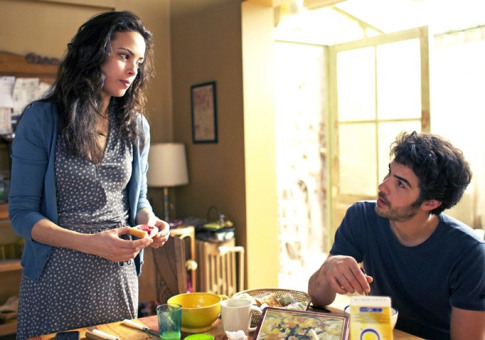ASGHAR FARHADI’S THE PAST
Stories, whether in film or in literature, generally follow an arc. Things happen to a character or characters that we judge and like or dislike according to their personalities and their choices; situations develop, conversations take place, a certain point is reached, and there is a conclusion. In an Asghar Farhadi film (winner of an Academy Award for Best Foreign Film for “A Separation,”) only the conversation part is certain. In his new film, “Le Passé,” (“The Past”) shown in competition at the Cannes Film Festival, people talk, not hearing each other—as when they talk through a glass pane in an airport—or hearing wrong, or hearing too much.
Ahmad, an Iranian, comes back to France after four years to finalize the divorce his French wife wants in order to marry another man. Children on both sides cling to fragile homes, as is too often the case in today’s splintered families. An additional difficulty is that the new man is still married, although his wife has been in a coma for months after a suicide attempt. Why did she want to die, was anyone directly responsible, can a new couple be built on the ruins of the two broken ones?
It is Farhadi’s strength, once again on full display as in his previous films, that we are kept guessing throughout as bits of revelations float to the surface. We can’t judge any of the characters, we don’t know enough about them and the more we discover, the less we can decide for or against them. There’s nothing intrinsically wrong or right with their morals or their actions. They fumble through life—but don’t we all?
Farhadi’s master touch comes at the end. In “A Separation,” the very last scene is that of the young girl who is asked by the judge whether she has decided to leave Iran with her mother or stay with her father. “I have,” she says. But we don’t learn the decision… credits start rolling. In “Le Passé,” in a hospital scene that could decide which way the resolution lies, we focus on that last image, that of two hands, one of which should move. Does it? Is there an imperceptible tightening? And… the screen goes dark.







